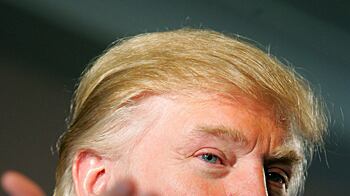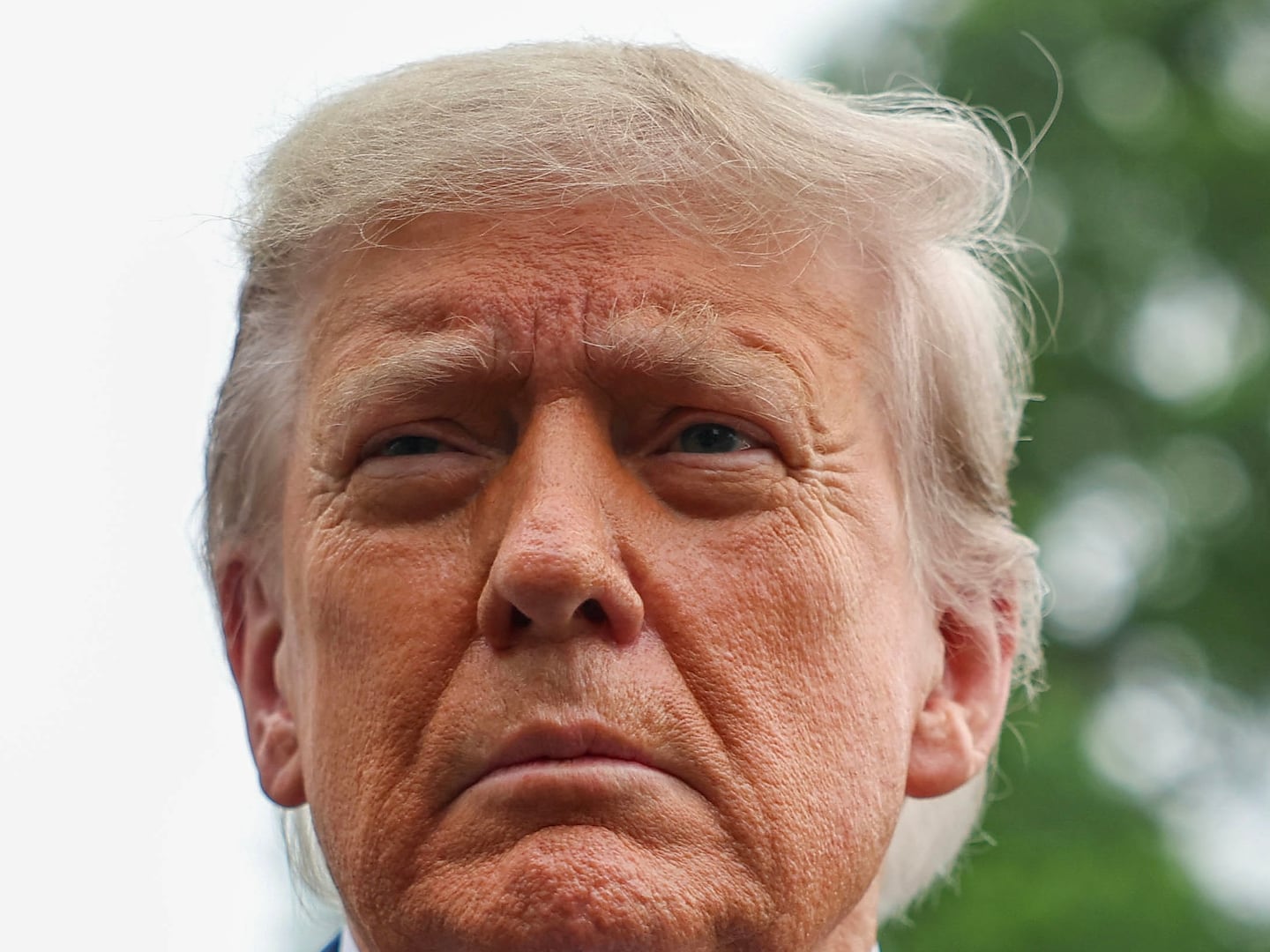There is a place for a CEO presidential candidate in 2012. So far, Donald Trump isn’t filling it.
Instead of focusing on his executive abilities and job-creating experience, The Donald has been busy going the full Birther.
It’s hard to tell whether he’s freelancing or just very badly advised, but one thing is clear—Donald Trump is trying to apply New York City tabloid rules to a prospective national presidential campaign. This ain’t going to end well.

Relentless self-promotion and shock-jock soundbites might get you headlines, but it won’t get you taken seriously. That helps when you want to be trusted with your finger on the button.
And pandering to the lowest common denominator of the electorate isn’t going to get this self-styled symbol of America’s super-rich confused with a conservative populist.
They’re still going to know that you live in New York City in a gleaming gold office tower and fly in a private plane with your name on the side. Parading common conspiracy theories isn’t the same as sharing values. And even a cursory glance at the Trump biography would show that he doesn’t have any business going after the values vote. This is pandering for no purpose.
The irony is that there is a tradition of CEO political candidates that Trump could semi-credibly try to fill. It is a path that Wendell Wilkie walked to win the GOP presidential nomination in 1940. It is the appeal that led to “ Draft Lee Iacocca” efforts in 1988 and the independent candidacy of Ross Perot in 1992. Its most successful modern practitioner is New York City Mayor Michael Bloomberg.
The CEO candidate promises to run government like a business: Balance the budget, cut through red tape, and unleash the entrepreneurial spirit. It’s a no-nonsense pitch, offering decisive leadership that is independent from special interests and promises to focus on job creation and American competitiveness. The CEO candidate is at least agnostic on the subject of social-issue litmus tests because they are largely irrelevant to on-the-job performance. A candidate like Trump can fairly say that he wants the government out of the bedroom and out of the boardroom.
An office that Trump might actually have a shot at winning—like running for mayor of New York in 2013—gets more distant by the minute.
At first, it appeared that Trump was going to flirt with a presidential campaign along those more libertarian lines. His first political speech was at this year’s Conservative Political Action Committee, which he attended as the guest of the gay conservative group GOProud, which had come under criticism from social conservatives for their participation in the annual conference. (Full disclosure: My wife is on the board of GOProud.) Groups like the Heritage Foundation boycotted in response. Donald Trump came to their defense.
But he lost little time in otherwise conforming to social conservative litmus tests—announcing that he was now anti-abortion and opposed to marriage equality. When asked whether he supported "civil benefits" for same-sex partners—an apparent reference to "domestic partner benefits," a relatively uncontroversial measure increasingly supported by governments and businesses—Trump said that as of now, he did not support them.
Then came the Birther conversion. Readers of this column have long been following the rise of the Birthers as a troubling sign of the fringe blurring with the base. Perhaps someone showed Trump the recent PPP poll that found that 51 percent of Republican primary voters don’t think that President Obama was born in the United States—and an additional 21 percent say they’re not sure. Maybe Trump thought that he could erase some of his personal negatives by positioning himself to the far right of the GOP pack, at least on this (thoroughly discredited) issue. So he kept digging the hole and even tried the publicity stunt of positing his own birth-certificate on a website—which turned out to be illegitimate. Face-palms ensued.
Here’s a suggestion—if he’s going to commit to this line of questioning, Trump should fly out Orly Taitz, “ Queen of the Birthers” to his office and sit down for a nice, long chat. If he likes what he hears, she can be announced as a policy adviser. If he thinks she’s not-so-tightly wrapped on this issue, he should drop the whole thing. Immediately.
Because Trump enjoys high-name ID courtesy of reality TV, his prospective presidential candidacy registered 10 percent in a recent CNN poll. When asked about the Libyan intervention, Trump couldn’t resist bragging about how he’d “screwed the guy”—in a business sense, of course. Enough about questions of war and peace, let’s talk about me.
This has all the heraldry of a publicity stunt. But political consultants, smelling a multimillion-dollar payday, are circling, encouraging a presidential run. In the process, an office that Trump might actually have a shot at winning—like running for mayor of New York in 2013—gets more distant by the minute.
Trump’s presence as the most prominent Birther in the GOP consideration set only highlights the clownishness that pervades today’s presidential campaigns. For too many, it’s not seen as serious civic service but a self-aggrandizing, headline-grabbing career move. In this sense, Trump’s real political forebear isn’t Ross Perot or Mike Bloomberg—it’s a one-time mayor of Bridgeport named P.T. Barnum.
John Avlon's most recent book Wingnuts: How the Lunatic Fringe Is Hijacking America is available now by Beast Books both on the Web and in paperback. He is also the author of Independent Nation: How Centrists Can Change American Politics and a CNN contributor. Previously, he served as chief speechwriter for New York City Mayor Rudy Giuliani and was a columnist and associate editor for The New York Sun.






